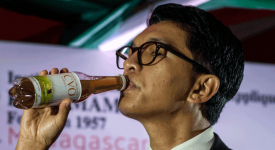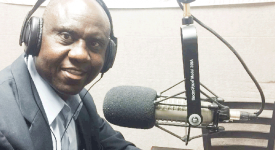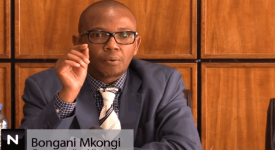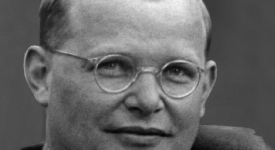17-year-old African American Trayvon Benjamin Martin (February 5, 1995 – February 26, 2012) of Miami Gardens, Florida was on February 26, 2012, killed in execution style. His killer, George Zimmerman, a neighborhood watch volunteer, in Sanford, Florida, went freed.
18-year-old Michael Brown was downed by at least six bullets–two to the head and four in the back. His killer was belatedly announced to be Darren Wilson. According to the New York Times and Huffington Post reports, police chief of Ferguson Thomas Jackson made the announcement after nearly one week of the fatal shooting. This latest incident in police related brutality has sparked new episode of America’s race drama. Michael, the murdered African American kid, is another national topic for racing race discourse.
Surprisingly, America is civilized society, a leading champion of democracy. Yet black men continue to live under a pungent and poignant atmosphere of veritable terror, a greatly palpable foreboding lurks in the dark, behind every black man in this country. If you know Borno State in Nigeria, perhaps, you would appreciate the comparison between Nigeria’s Boko Haram and racism in the US. Whereas, in the case of Nigeria, citizenship rights are not well defined, not known really, the United States of America is a dream country for many the world over, but the climb to meaningful existence in black community compares comfortably to living in the terrorists’ den in Nigeria.
Since Trayvon’s death, many businesses have sprung up from the saga, dividends of protests. The protests in Ferguson soon would materialize into some concrete capitalistic ventures with potentially high profits. Then who’s next? Whose kid would be that next boy to be brutally killed in America’s growing gun violence? When we speak of deaths of black kids, we often leave out the statistics which black communities add up on their own in community violence: between rival groups or gangs of Hollywood-mimicking black kids.
While the various arms of government and public officials make efforts to stem this menacingly trendy pattern in American society, it is advisable that black leadership do more than add to the rhetoric. Black leadership must meet the demands of their communities, go down there, not stay up on national televisions, walk the walk in black (or white) communities, use their charisma, talents, and their money to produce desired change. In the same vein, it might be helpful if hypocritical prayers are stopped, and actions implemented to bring change to black life in America. This is biblical James’ advice when he says “prayer without works is death” (James 2:17).
As disillusionment grows among America’s enslaved blacks, new dimensions of systemic violence are taking public shape, but every open performance begins with the imagination. There has to have been a prior execution of dastardly acts of violence well before they come into public sphere. Yet because black persons could no longer fathom these crucibles of comprehensive terror in their life and community, they are quick to doubt whatever hope a purportedly post-race Barack Obama holds for them. But then they remember Trayvon Martin Plus Michael Brown, and they ask, who’s next?







